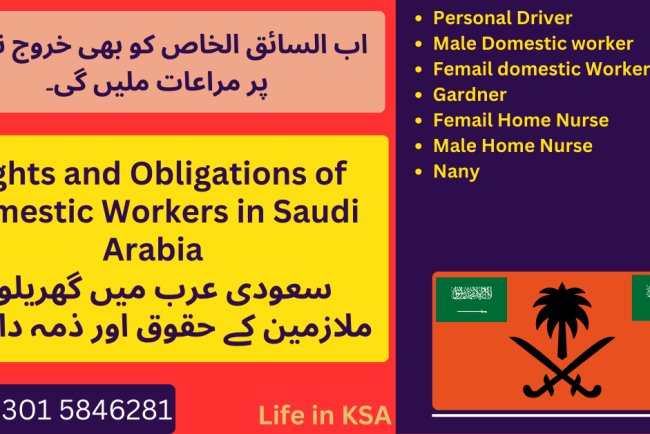The Average Salary in Saudi Arabia: Insights for Job Seekers and Expats
Navigating the global job market, especially in regions with diverse economic landscapes such as the Middle East, necessitates a nuanced understanding of average salary figures. Saudi Arabia, in particular, presents a rich tapestry of opportunities for professionals and expats from all corners of the world.

Navigating the global job market, especially in regions with diverse economic landscapes such as the Middle East, necessitates a nuanced understanding of average salary figures. Saudi Arabia, in particular, presents a rich tapestry of opportunities for professionals and expats from all corners of the world. Aspiring job seekers and seasoned professionals eyeing this region must equip themselves with insights into not just the richness of the roles available but the monetary rewards they might entail. In this comprehensive guide, we'll delve into the average salary ranges in Saudi Arabia, offering invaluable information on the current job market and providing strategic salary guidance for those who seek to capitalise on their career prospects in the Kingdom.
Understanding the Saudi Arabian Job Market
Saudi Arabia's job market is vast and evolving. The country is undergoing a significant transformation, with economic diversification initiatives and large-scale infrastructure projects creating a demand for skilled labor. Despite the economic resilience, the market is highly competitive, and industries such as petroleum, engineering, finance, and healthcare dominate employment.
Key factors that influence salaries in Saudi Arabia include the level of demand for certain skills, the state of the global oil market, and the government's nationalization policies, which seek to prioritize job opportunities for Saudi citizens. Furthermore, the country's Vision 2030 plan is driving growth in non-oil sectors, particularly in technology, tourism, and entertainment, which may influence salary trends over time.
Average Salary Ranges in Saudi Arabia
The average salary in Saudi Arabia varies significantly by industry. For instance, professionals in IT and telecommunications often command higher wages than those in retail or customer service. Management roles, particularly in multinational corporations, generally offer the highest compensation, followed by roles in healthcare and engineering. Entry-level positions, on the other hand, tend to offer more modest pay.
When comparing average salary ranges, experience is a crucial factor. More experienced individuals can earn double or triple the salary of entry-level workers in the same field. Consequently, mid-level to senior professionals can expect salaries that reflect their expertise and the associated responsibilities.
Factors Affecting Salaries in Saudi Arabia
The Saudi Arabian salary landscape is influenced by several key factors beyond job role and experience:
Cost of Living and Inflation
The cost of living in Saudi Arabia varies depending on the city, with Riyadh and Jeddah typically being the most expensive. Inflation can also impact living expenses and, consequently, salary expectations.
Education and Qualifications
Degree level and field of study can significantly impact salary. Postgraduate degrees, particularly those obtained from prestigious universities, generally lead to higher earning potential. Also, professional certifications and licensures are recognized and rewarded in the job market.
Nationality and Expat Status
Expatriate salaries in Saudi Arabia may differ based on nationality, with Western expats often being among the highest earners. Visa status and employer-provided housing and transportation are additional factors that can influence expatriate remuneration.
Gender Pay Gap
In line with social and cultural norms, there is a noticeable gender pay gap in Saudi Arabia. However, the country is taking strides to address this disparity through legal and policy reforms.
Salary Insights for Job Seekers
For job seekers, negotiating a competitive salary is both an art and a science. Understanding the average pay for your desired role and level of experience as well as the financial health of the company is crucial.
Tips for Negotiating Salaries
Researching average salaries and benefits offered in your specific industry and location allows you to enter negotiations with a clear understanding of what is reasonable to expect. Emphasizing your skills, experience, and future value to the employer can strengthen your position during salary discussions.
Understanding Salary Packages and Benefits
In Saudi Arabia, salary packages often include housing allowances, health insurance, and education allowances for expatriate employees. It's important to evaluate these benefits alongside the base salary when considering a job offer, as they can significantly boost the overall compensation.
Resources for Researching Salaries
Numerous online platforms and recruitment agencies provide data on average salaries. However, it's advisable to cross-reference multiple sources to get a more accurate picture. Additionally, networking with professionals in your industry can provide real-world insights into salary ranges.
Salary Insights for Expats
Expatriates in Saudi Arabia often enjoy more substantial salary packages to accommodate the cost of living and to attract international talent. However, it's important to consider various aspects of expatriate life when assessing the true value of a job offer.
Differences in Salary Packages
Expatriate salary packages can be quite comprehensive, including bonuses, relocation support, and repatriation benefits. They are often designed to maintain or exceed the expat's standard of living in their home country.
Cost of Living Considerations
While the cost of living in Saudi Arabia is generally lower than in many Western countries, certain goods and services may be priced higher for expatriates. Understanding and balancing these costs is necessary to make informed financial decisions.
Taxation and Remittance Options
Personal taxation in Saudi Arabia is relatively low, with a flat income tax of 15% for expatriates. Various remittance options are available, allowing expats to transfer money internationally while minimizing fees. It's also important to research the tax laws and regulations of both Saudi Arabia and your home country.
Negotiating Your Salary
When considering a job offer, don't be afraid to negotiate your salary. Researching average salaries for similar positions in the region can provide valuable leverage in negotiating a higher compensation package. Additionally, highlighting your skills and experience can demonstrate your value to the
Salary Insights for Specific Audiences
Understanding how average salaries in Saudi Arabia align with the backgrounds of different job seekers is essential. Let's dive into the salary insights for specific demographic groups.
Pakistani Expatriates
Pakistani expatriates working in Saudi Arabia often earn competitive salaries, particularly in engineering, healthcare, and IT. Seeking job opportunities that align with sought-after skills is a smart way for Pakistani professionals to secure a rewarding position. Additionally, many Pakistani expats are able to leverage their cultural and language skills to secure jobs in education or governmental roles.
Indian Expatriates
Indian expatriates make up one of the largest populations of foreign workers in Saudi Arabia. They often work in industries such as construction, finance, and healthcare. With a wide range of professional backgrounds and skills, Indian expats
Indian Expatriates
The Indian expatriate community is one of the largest in Saudi Arabia. Indian professionals, particularly those in management and engineering roles, can expect salaries that reflect both their demand in the job market and their contributions to the country's economic development. Taking advantage of networking opportunities and showcasing their skills can help Indian expats land lucrative positions in Saudi Arabia.
Western Expatriates
Western expatriates, particularly those with specialized skills or experience, can expect high salaries and attractive benefits packages in Saudi Arabia. With a focus on building relationships and showcasing cultural awareness, Western professionals can excel in securing top-paying positions that align with
Bangladeshi Expatriates
Bangladeshi expatriates may face steeper competition for high-paying jobs but can still find opportunities in sectors such as construction, hospitality, and healthcare. Leveraging professional networks and gaining additional qualifications can enhance earning potential.
Women Expatriates
Despite progress being made towards gender equality in the workforce, women expatriates may still face challenges in securing high-paying jobs in Saudi Arabia. However, with growing opportunities in sectors such as education and healthcare, women professionals can negotiate competitive salaries while contributing to the country's development.
Pak Army Persons
Former members of the Pakistan Army bring unique skills and experience to the job market. In Saudi Arabia, ex-military professionals often transition into security, defense, and infrastructure roles that offer competitive salaries and benefits. Their leadership abilities, adaptability, and discipline are highly valued by employers in various industries.
Women
The Saudi government's efforts to increase women's participation in the workforce have resulted in more job opportunities for female professionals. In fields such as education, healthcare, and finance, qualified women can expect competitive salaries that reflect their skills and qualifications. Furthermore, companies are also providing benefits such as flexible working hours and childcare facilities to support women in their careers.
Young Professionals
Saudi Arabia's Vision 2030 aims to diversify the economy and create a knowledge-based society. As a result, there is an increasing demand for young professionals with in-demand skills such as technology, innovation, and entrepreneurship. By staying updated on industry trends and acquiring relevant skills, young professionals can secure high-paying roles in various sectors.
Skilled Migrants
The Saudi government has implemented policies to attract skilled migrants from all over the world. There are opportunities for professionals in fields such as engineering, healthcare, and IT. With competitive salaries and benefits, skilled migrants can contribute to the country's economic growth while also gaining valuable international experience.
Conclusion
The economic landscape in Saudi Arabia continues to offer vast potential for job seekers and expatriates from diverse backgrounds. By arming oneself with knowledge of the average salary ranges and the various factors that influence compensation, individuals can make informed decisions that align with their career and financial goals. In the competitive and rewarding environment of the Saudi job market, understanding these crucial salary insights is the cornerstone of a successful professional journey. So, it is important for job seekers to continuously upgrade their skills and knowledge to align with the evolving demands of the job market. By doing so, they can not only secure a well-paying position but also contribute to the growth and development of Saudi Arabia's economy. With its diverse expatriate community and thriving industries, Saudi Arabia continues to be a top destination for professionals looking for lucrative career opportunities. As the country's economy continues to grow, so do the possibilities for job seekers to advance their careers and achieve their financial goals. So, individuals who aspire to work in Saudi Arabia should not only focus on securing a high-paying job but also strive to excel and make a valuable contribution to the country's workforce. With determination, hard work,
What's Your Reaction?




















